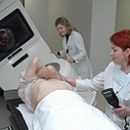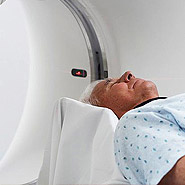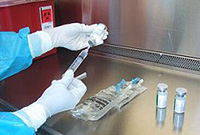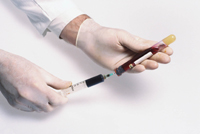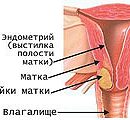For the treatment of colon cancer, the main method of treatment is operational intervention.How to behave in the postoperative period? How will the sex life affect? What to do if colostomy is required? Read in this article.
Content
What are the types of treatment?
For the treatment of colon cancer, the main method of treatment is operational intervention. 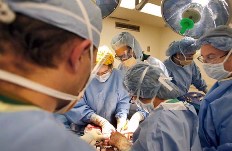
However, such methods such as chemotherapy and radiotherapy are currently applied. Your doctor will make up a plan for your treatment, taking a whole number of factors, including your age, the general health, type and size of the tumor, the microscopic structure taken to study the samples of its tissue, as well as the presence or absence of metastases outside the intestine.
Being in the hospital, you may notice that other patients do not get such treatment as you. It is often explained by the fact that the form of their diseases is different from yours, and therefore it requires a different treatment. This may be due to the fact that the views of various doctors regarding the feasibility of the use of certain methods of treatment are different. If you have any questions regarding the treatments appointed exactly, do not be afraid to ask them to your doctor or nurse caring for you. It is often useful to make a list of questions, going for a consultation to the doctor, and take a friend or a close relative with me.
Some patients believe that deciding on consent or disagreement to the treatment method proposed by it could help knowledge of opinions on this account of another specialist. Most doctors will be happy to send you to another specialist, since you consider it useful for yourself.
Operational treatment
Your doctor will discuss with you the question of the most suitable type of surgical operation for you, depending on the type and size of the tumor, as well as on the presence or absence of metastases. Before any operation, make sure that you have comprehensively discussed all the problems associated with it with your doctor. Remember that no surgery and no procedure must be carried out without your consent.
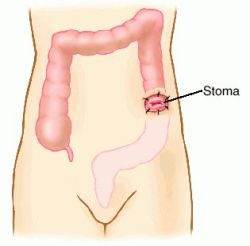 Surgery — The most commonly used form of cisher cancer treatment. Usually the segment of the intestine in which the cancer tumor was formed, and then the two open end are connected to each other. During the operation, the lymph nodes can also be removed, because, first of all, cancer cells from the tumor can spread.
Surgery — The most commonly used form of cisher cancer treatment. Usually the segment of the intestine in which the cancer tumor was formed, and then the two open end are connected to each other. During the operation, the lymph nodes can also be removed, because, first of all, cancer cells from the tumor can spread.
If for any reason the ends of the intestine is impossible, then one of them can be launched on the front wall of the abdominal cavity. Such an operation is called a colostomy, and the opening of the intestine is known as a stoma. The stoma wear a special bag for harvesting (cableryamic). Sometimes the colostomy is made only for some time, after which (usually several months later), you can make an operation to connect the ends of the intestine. If such an operation is impossible, then you have to limit the colostomy. However, only a relatively small percentage of patients with intestinal cancer needs Colthomomy.
Sometimes the patient make an operation called ileostomy; In this case, a small segment of the small intestine will remove the wall of the abdominal cavity. As with the colostomy, the carte masses are collected in the cathrium, worn on one as a rule, this is not a final operation for patients with caressing cancer and rectum.
Probably, you will be put in the hospital on the eve of the day appointed for the operation, so that the doctors and sisters manage to spend all additional tests. To ensure complete emptying of the intestine you will be asked to strictly observe the diet and take the laxative on the eve of the day. Your doctor will tell you about everything you need in more detail.
Sometimes, if the cancer tumor caused the blockage and obstruction of the intestine, there may be a need for an urgent operation.
Postoperative period
After the operation, you will advise you to start moving as early as possible. This is — An important part of the process of your recovery, and even if the bed regime is prescribed to you, it is necessary to regularly perform exercises for legs and breathing exercises (deep breathing). On how to do these exercises, physiotherapist will tell you in detail.
 For reimbursement of water in your body, you will do intravenous infusion (droppers) until you are able to eat normally again and drink. Sometimes a special thin tube reaching the stomach is introduced into the nasal hole. It serves to eliminate any excessive fluid from the body, so that the patient does not feel nauseous. As a rule, it puts in about two days.
For reimbursement of water in your body, you will do intravenous infusion (droppers) until you are able to eat normally again and drink. Sometimes a special thin tube reaching the stomach is introduced into the nasal hole. It serves to eliminate any excessive fluid from the body, so that the patient does not feel nauseous. As a rule, it puts in about two days.
Before the operation itself and after it, you will be introduced intravenously antibiotic to prevent various infections. You will also be prescribed to wear special stockings and take the drug heparin. Both of these measures are used to prevent blood clots in vessels.
Since the anesthetics reduce the intensity of intestinal peristalsis, it is very important that the patient does not start drinking again until the normal intestinal work is restored. By the expiration of two days after the operation, you are likely to be allowed to start drinking water with small sips. Gradually, this portion will increase (for a couple of days), and then you will register a light diet (usually 4-5 days after surgery).
Often a small tube (catheter) is introduced into the bladder of the patient to derive urine in the urinary. The catheter is usually removed after two days. It is possible to introduce a drainage tube at the operating room site to ensure the rapid healing.
After the operation, the patient is likely to feel pain or discomfort. There are several different painful means of very effective action. If the drugs assigned to you do not help, then you need to make a doctor or sister as soon as possible about it in order to replace them with others. After some intestinal operations, the patient may feel discomfort in a sitting position if he has to sit for a long time, but this feeling will gradually pass after the wound will start healing.
Probably, after about ten days after surgery, immediately after removing the seams you will be discharged from the hospital. If you think that you may have problems when returning home, for example, you live alone and you have to get up to several staircases, put your nurse or social worker about your discharge, so that you need the necessary help.
Many social workers are capable not only to give a valuable practical advice, but both specially trained consultants they can also provide substantial support and you and your family, both in the hospital and at home. If you have a desire to talk with a social worker, ask your doctor or nurse to organize a meeting with him.
Before you leave the hospital, you will be prescribed the day of visiting the clinic, as an outpatient patient, to observe you in the postoperative period. With this visit to the doctor, you can discuss with him all the problems with which you are likely to come across the operation.
Some patients need a longer return period to the norm after the operation in comparison with other. If you have any problems, you may prefer to discuss them with someone who is not directly related to your disease. In this case, it is advisable to apply to a consultant or to someone from the local support group of cancer.
Will an operation for sex life affect?
After you returned to the norm after the operation, as a rule, any medical indications that do not allow to resume normal sexual life, absent. However, it is possible that you will feel some embarrassment in connection with the external changes in your body, especially if you have undergone operations but the imposition of a fistine for a hazelding (colostomy), believing that it prevents the normal sexual intercourse.
If your partner is able to understand and support you, then it may be enough to talk to him about your feelings enough to dispel your fears and anxieties. You should not stop the false sense of guilt or embarrassment to contact your doctor and tell me everything that worries you: He will be able to direct you to a specialist consultant if you find it useful.
Sometimes the operation on the plot of the rectum can cause damage to the nerves going to the genital organs. If such damage occurs in a man, it may have problems with the completion of sexual intercourse, preserving the state of the erection and ejaculation. But this complication takes place only in rare cases and is often temporary. However, sometimes it may stay forever.
If you encountered any problems, consult a doctor for more detailed explanations.
If required colostomy
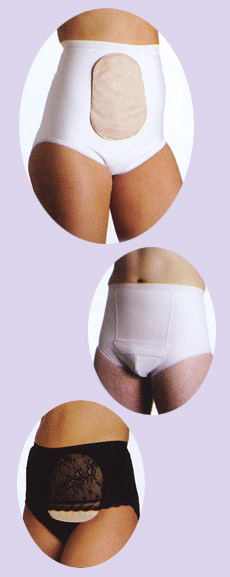
In most hospitals, there are specially trained nurses, the so-called sisters for the care of stoma, which will show the patient how to care for the stoma and will help him solve any of the problems with which he will have to face. It is also possible that the patient will find helpful to talk to someone who has already learned to live after such an operation. Often a doctor or nurse can organize such a meeting that comes from a person who has a personal practical experience may be invaluable, especially if it is received during the first few months after the operation.
Before the operation, the doctor or nurse will carefully develop the position of the stoma for each particular patient, in order to exclude the shift of the carriagory in any patient position — Sitting, standing or in motion.
During the first few days after surgery, the nurse will be very careful for the patient (instead of it) and monitor the emptying and replacing the cylinderiary to be made with the necessary frequency. The first time of Stoma will be somewhat brazed, and can pass a few weeks before it decreases to its normal size. As soon as the patient feel good enough, the nurse will show him how to clean the stoma and the replacement of cylinderiary. There are various types of cathryamic types and similar devices, and the nurse will help you choose the most suitable for each specific patient.
Before proceeding to replacing or emptying the cylinderInik, make sure that you have a sufficient number of cathryamics and materials of sanitation.
It is very advisable to keep everything necessary for this procedure, in one place, so that it does not have to start looking for the necessary things in the last minute. It should also be achieved by the opportunity to retire for a sufficiently long term, so that no one can prevent these procedures and it was possible to work with the most convenient speed and without fuss.
Some patients prefer not to wear a permanent carriagory, but approximately one day to rinse and rinse the stream of jet. Although this method is not suitable for everyone, the care sister will discuss this question in more detail with you.
It is advisable that at the moment when a nurse will show you how to care for the stoma, there was someone from close relatives in case, if you need help when you are at home and come across any difficulties.
Will it takes a change in the power mode?
First of all, you will probably notice that the use of some foods violates the normal operation of your intestine or the functioning of the stoma, if the corresponding operation is made. Eating a rich fiber, for example, fruits and vegetables, can determine more or less liquid chair and more frequent, in comparison with the norm, separation from the stoma. Often — This is a temporary reaction, and after some time you may find that the same food no longer gives such an effect. There are no established rules regarding the types of food products that should be avoided, and each patient must derive this rule for itself on the basis of personal experience. Some products that are not suitable for one can be quite suitable for another. If you fail to independently solve your problems, consult with a nutritionist.
Depending on the type and scale of the transferred operation, you may experience diarrhea. Report this doctor or nurse. They can give you a corresponding medicine. If you have diarrhea, it is important to drink a large amount of water.

